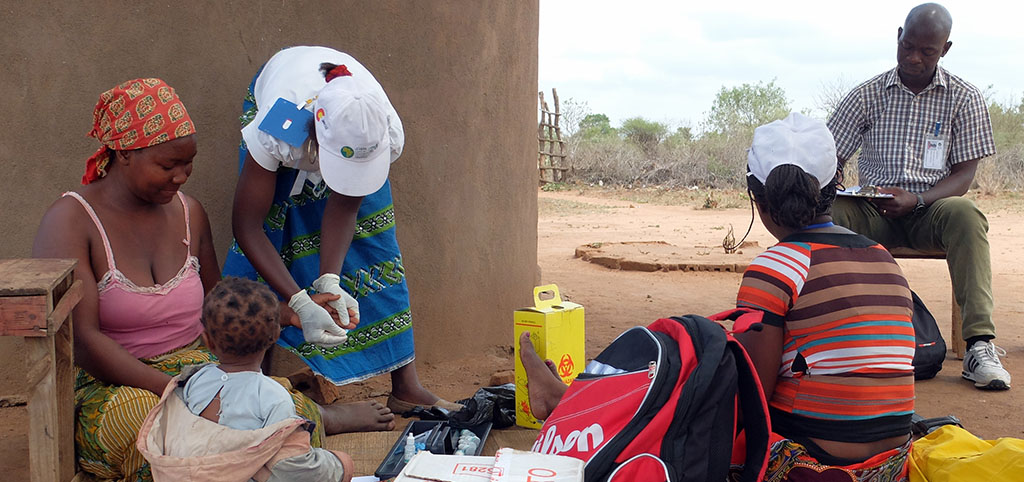Cloroquine Could Make a Comeback as a Complementary Tool for Malaria Elimination Efforts
A study in Southern Mozambique demonstrates the drug’s efficacy in the treatment of asymptomatic infections
04.05.2017
Cloroquine could become a valuable tool in malaria elimination efforts, according to a study co-led by ISGlobal, an institute supported by the ”la Caixa” Banking Foundation, and the Health Research Center at Manhica (CISM) in Mozambique. The results, published in Scientific Reports, show that cloroquine resistance has greatly decreased in Southern Mozambique and that its use at the community level could contribute to malaria elimination.
Drug resistance can have a fitness cost for the parasite, in which case it tends to revert when drug use is discontinued. This has been the case for cloroquine (CQ): after the global spread of CQ-resistant parasites in the 1970’s, their prevalence has decreased over the last years as a result of drug withdrawal. For instance, the prevalence of CQ-resistant parasites in a region of Mozambique has decreased from 90% in 2006 to 30% in 2010. This suggests that CQ could be used again in certain regions, not as first-line treatment but as complementary drug to boost malaria elimination efforts. However, its efficacy in such context remains to be demonstrated.
The goal of this study was to evaluate CQ efficacy in the treatment of asymptomatic infections among healthy volunteers in Manhica, an area where clinical malaria prevalence in children has reached 40%. To do so, the authors conducted community visits in search of individuals that did not present clinical symptoms but were infected by the malaria parasite (detected by microscopy). Some were given CQ and others were given placebo, and they were closely followed during one month. Blood samples were analysed by microscopy and by molecular methods to confirm parasite presence or absence and detect mutations that confer CQ resistance.
The results show that CQ was effective in clearing the parasite –98% of treated patients were free of infection 72 hours after the first dose. They also show that mutant alleles (that confer CQ resistance) were detected in less that 5% of the cases. The low prevalence of CQ-resistant parasites confirms the tendency observed in other African countries.
“This study also provides important information on the evolution of asymptomatic infections” says Beatriz Galatas, ISGlobal researcher and first author of the study, “since spontaneous elimination of the parasite occured in 18% of placebo-treated patients, a larger proportion than previously reported”.
“The results of this first trial are encouraging” says Pedro Aide, researcher at CISM and co-coordinator of the study, “and set the bases for testing cloroquine efficacy in symptomatic patients, both adults and sick children”.
The authors conclude that CQ could be used as a complementary tool in malaria elimination strategies using mass drug administration, such as the MALTEM project in Southern Mozambique, supported by the “la Caixa” Foundation and the Bill and Melinda Gates Foundation. “Cloroquine has two great advantages: it has an excellent safety profile even in pregnant women and infants, and its long half-life (it is eliminated from the body after an average of two months) provides a long prophylactic effect”, says Quique Bassat, the other coordinator of the study.
Reference
Galatas B, Nhamussua L, Candrinho B, et al. n-Vivo Efficacy of Chloroquine to Clear Asymptomatic Infections in Mozambican Adults: A Randomized, Placebo-controlled Trial with Implications for Elimination Strategies Scientific Reports 7, Article number: 1356(2017) doi:10.1038/s41598-017-01365-4



